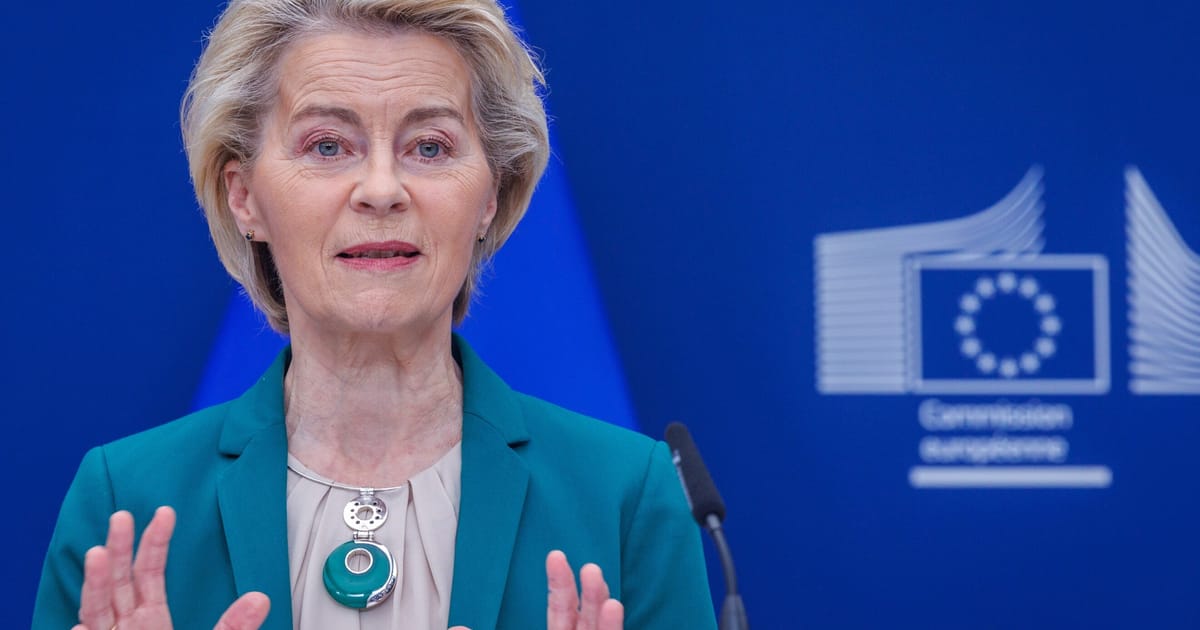But speaking Monday, two senior European Commission officials clarified that money would come exclusively from private European companies, with public investment contributing nothing.
“It is not something that the EU as a public authority can guarantee. It is something which is based on the intentions of the private companies,” said one of the senior Commission officials. The Commission has not said it will introduce any incentives to ensure the private sector meets that $600 billion target, nor given a precise timeframe for the investment.
However, the first official said that the $600 billion figure was “based on detailed discussions with different business associations and companies in order to see what their investment intentions are.”
Tariffs averted
Trump had threatened to impose 30 percent tariffs on most EU imports from Aug. 1, but after negotiations Sunday he dropped the figure to 15 percent.
The EU’s $600-billion promise played a key role in facilitating this agreement, but quickly drew criticism that an investment of that size would come at the cost of investment within Europe.
The Commission pointed out that the figure would come from private companies, not European taxpayers, contrasting with Japan’s promise to mobilize $550 billion of both public and private investments in the U.S. as part of a recently agreed trade deal.
